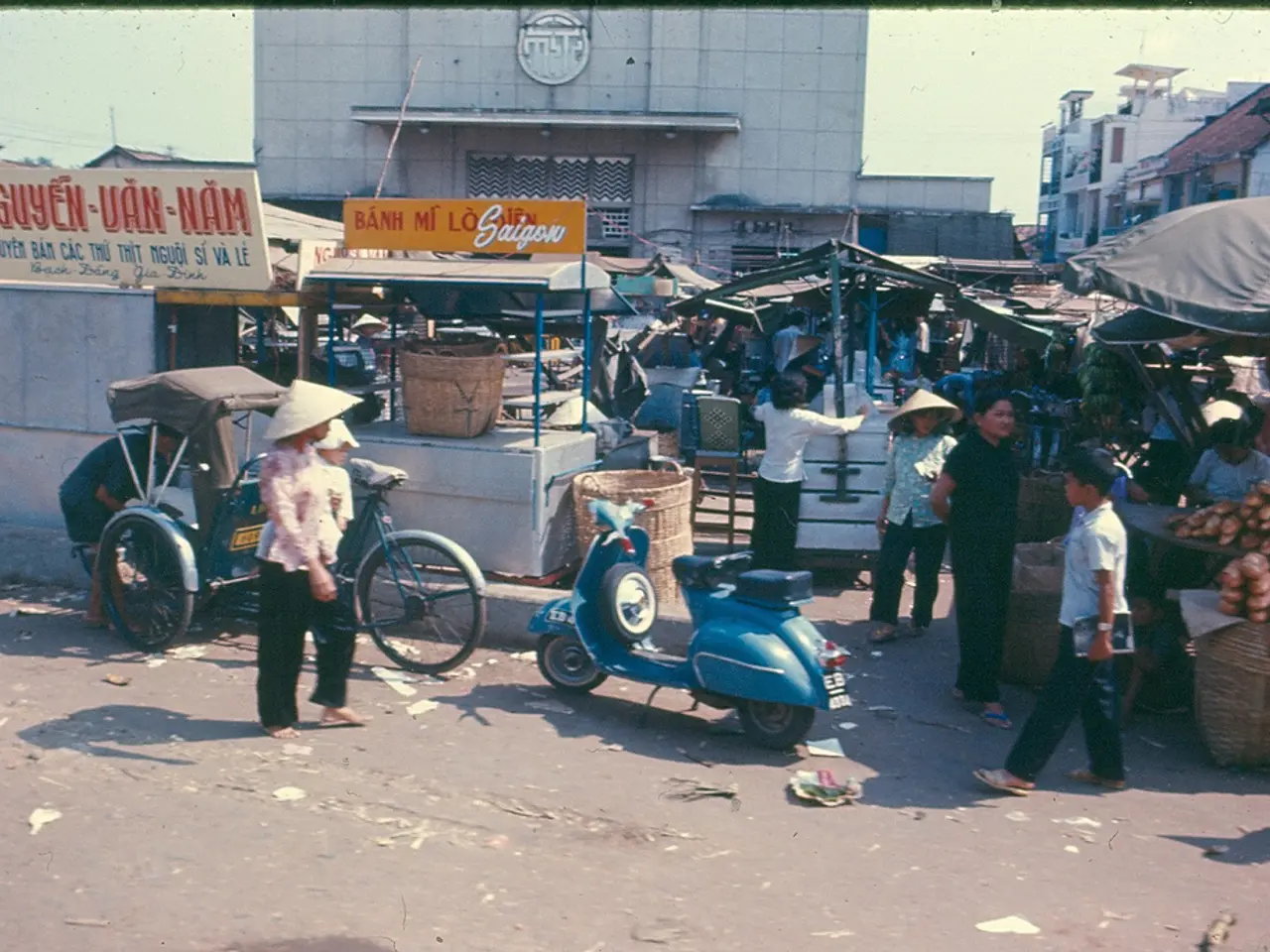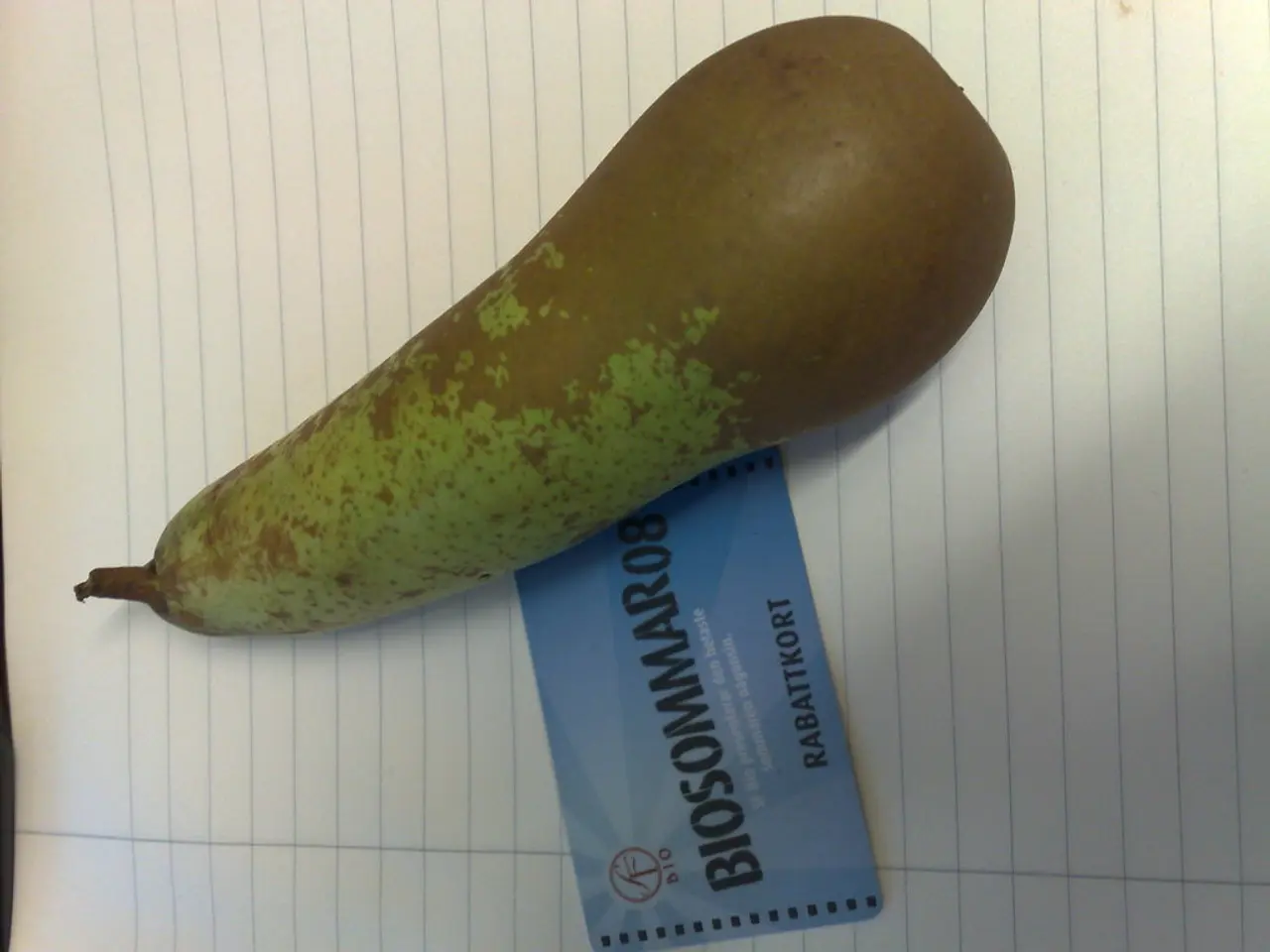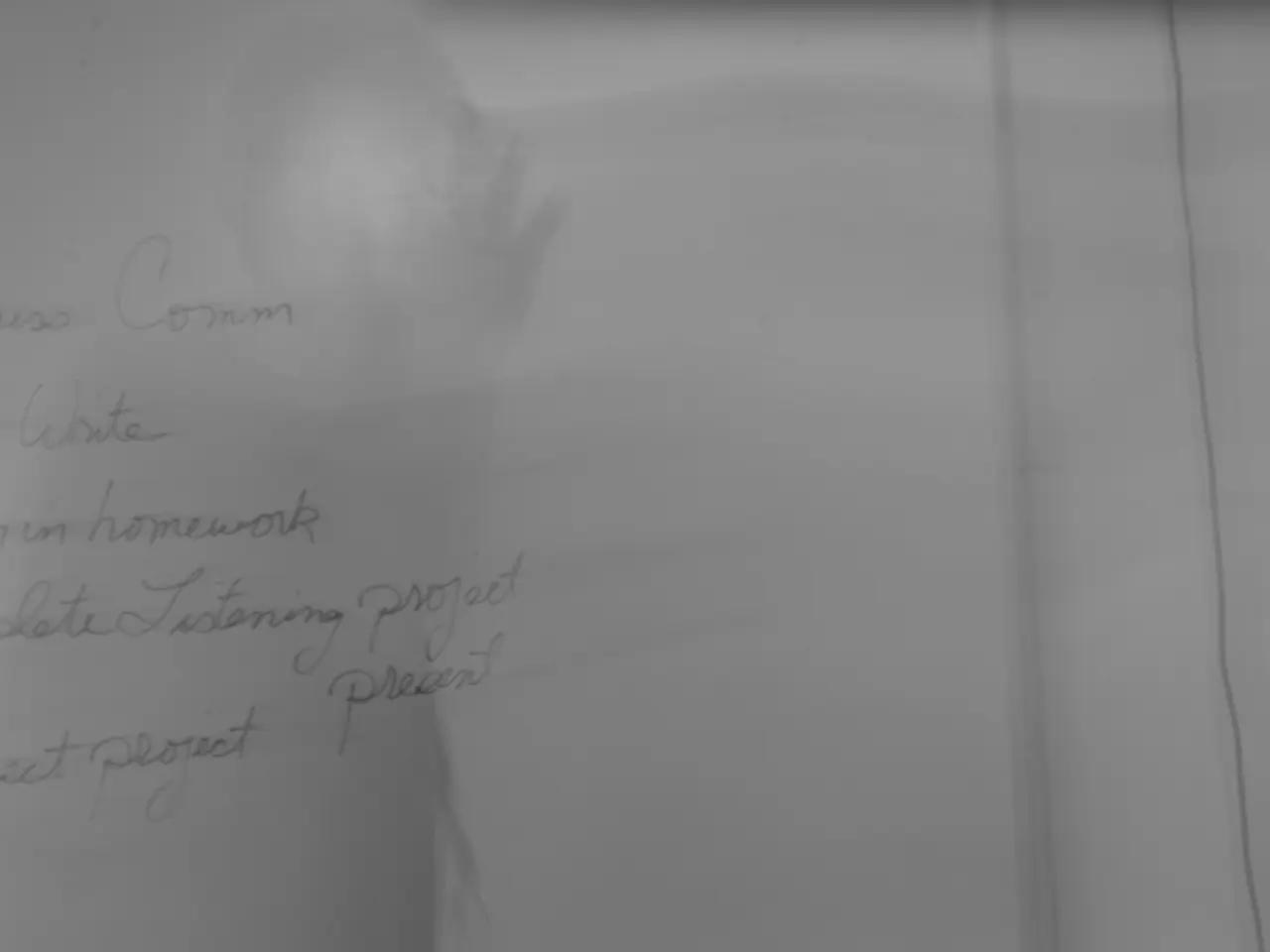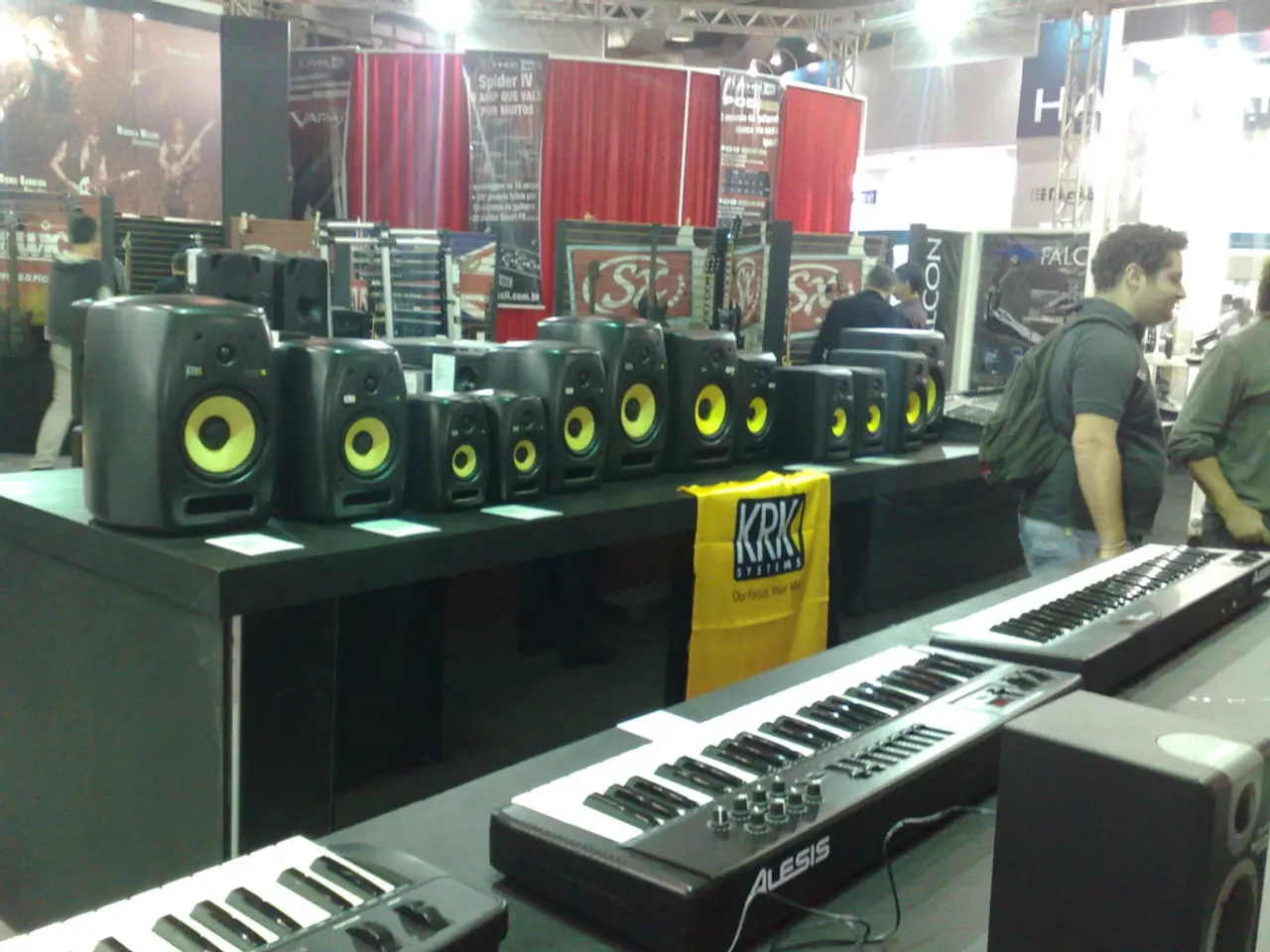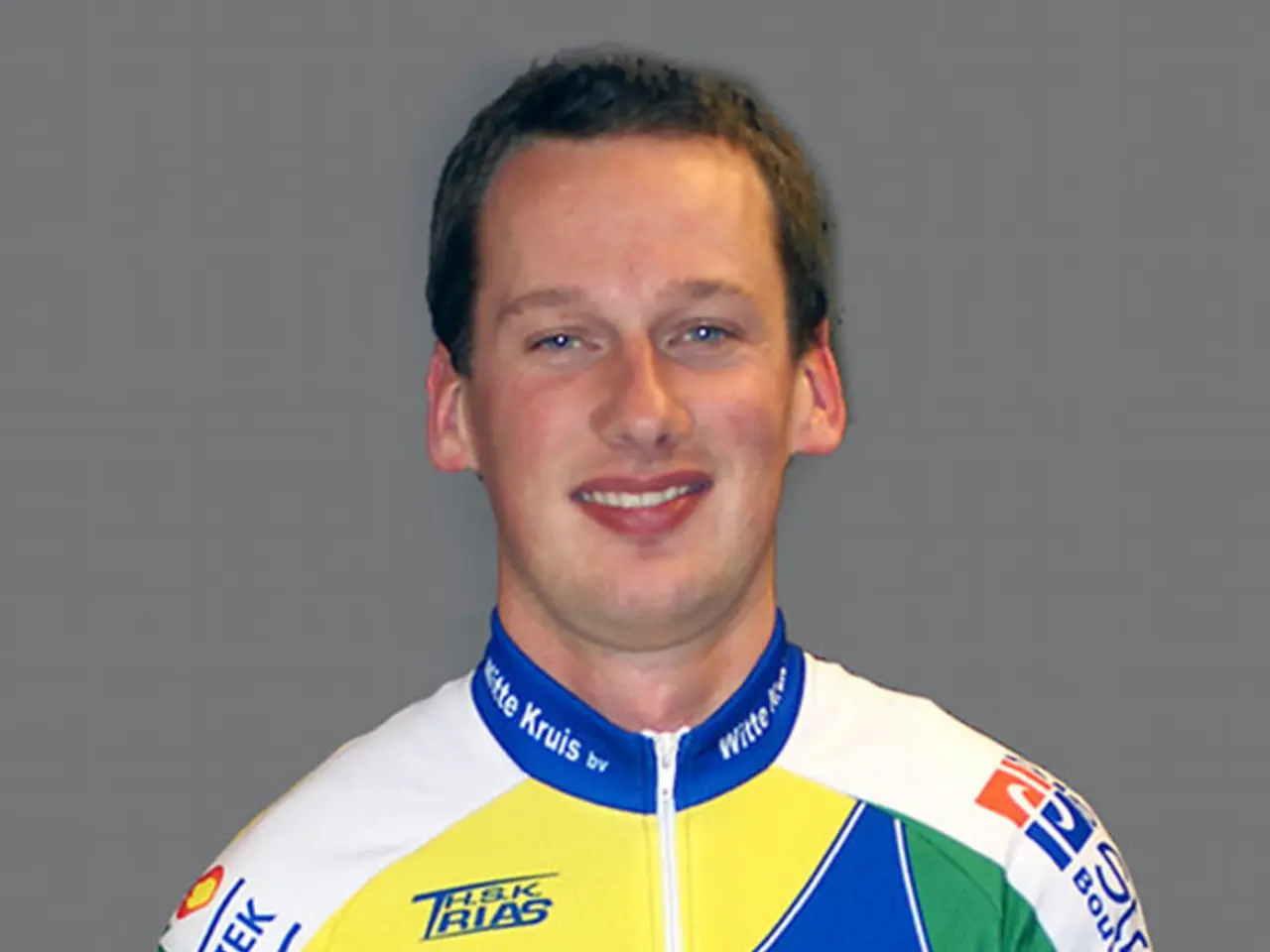"Cynthia Wijaya discusses the importance of understanding waste as a valuable resource in the context of Indonesian packaging company's shift towards circularity"
Indonesia's waste management and paper recycling industry is undergoing a significant transformation, driven by the adoption of circular economy principles. This shift, while presenting challenges, also offers promising solutions.
One of the major challenges in growing the business has been communicating circular economy concepts to informal waste collectors, who make up 40-60% of the waste supply. Cynthia Handriani Wijaya, a 30-year-old family business executive, recognised this issue and led the transformation of Daya Selaras Group into a circular business focused on recycling paper waste.
Quality is another issue, as the waste paper often received from waste collectors is too moist. To address this, DUS, the recycling arm of Daya Selaras Group, aims to improve waste segregation to reduce moisture content.
Wijaya's vision is to make Daya Selaras Group the number one business-to-business waste management platform in Indonesia over the next five years. Under her leadership, Daur Ulang Selaras (DUS) recycled 67,000 tonnes of paper waste last year, saving the equivalent of 1.1 million trees and offsetting 16.7 million tonnes of carbon dioxide.
DUS became its own profit center and now provides traceability data to its customers, making it more attractive for them to do business with Daya Selaras Group. The transformation was inspired by an article in National Geographic about the circular economy.
To implement the circular business model, Wijaya created a new unit within Daya Selaras Group after completing a post-graduate course in sustainability and circular economy. DUS works with multinational fast-moving consumer goods firms, e-commerce companies, and packaging recovery organizations to implement the circular model.
The RE-DUS app, launched in 2021, allows individuals and small businesses to schedule waste pickups for recycling. The app provides users with a contribution report, detailing the money earned and emissions reduced. The RE-DUS app has been designed to increase the recovery rate of waste, broaden the waste supplier base, and educate users about the value of waste.
Achieving scale will largely depend on informal waste collectors, who make up 40-60% of the company's waste supply. Wijaya wants the company to improve the segregation of waste paper received from waste collectors to reduce moisture content.
The transformation of Daya Selaras Group is an inspiring example of a family business embracing sustainability and the circular economy. Wijaya advises younger sustainability professionals to invest in themselves, stay true to their core values, be brave, learn from mistakes, and focus on a specific area of sustainability to have real impact.
As part of its continuous improvement, DUS aims to expand the reach of the RE-DUS app and plans to open another waste management warehouse in Bandung, West Java later this year. The sustainability team at Daya Selaras Group links the key performance indicators of the different subsidiaries with environmental, social, and governance (ESG) metrics and produces a sustainability report. The CTI score for DUS was 27% in 2022, 45% in 2023, and 52% in 2024. The goal for 2025 is to grow the CTI score by another 5-7%.
References: [1] SustainAbility. (2021). The Circular Economy in Indonesia: Opportunities and Challenges for the Paper Recycling Industry. [2] World Resources Institute. (2020). Indonesia's Waste Management: Challenges and Opportunities for the Circular Economy.
- Cynthia Handriani Wijaya, a 30-year-old family business executive, embraced the challenges of growing the business by focusing on the adoption of circular economy principles in Indonesia's paper recycling industry.
- Quality issues in the waste paper received from collectors have been addressed by DUS, the recycling arm of Daya Selaras Group, through improved waste segregation to reduce moisture content.
- With DUS's transformation into a circular business, Wijaya aims to make Daya Selaras Group the number one business-to-business waste management platform in Indonesia, reducing deforestation, and offsetting carbon emissions.
- DUS has become its own profit center, providing traceability data to customers and working with multinational companies, e-commerce firms, and packaging recovery organizations to implement circular economy models.
- The RE-DUS app, launched in 2021, aims to increase the recovery rate of waste, educate users about the value of waste, and broaden the waste supplier base in Indonesia.
- Achieving scale and meeting sustainability goals within the Daya Selaras Group depends on improving the segregation of waste paper received from informal waste collectors and expanding the reach of the RE-DUS app, while linking key performance indicators with environmental, social, and governance (ESG) metrics.
